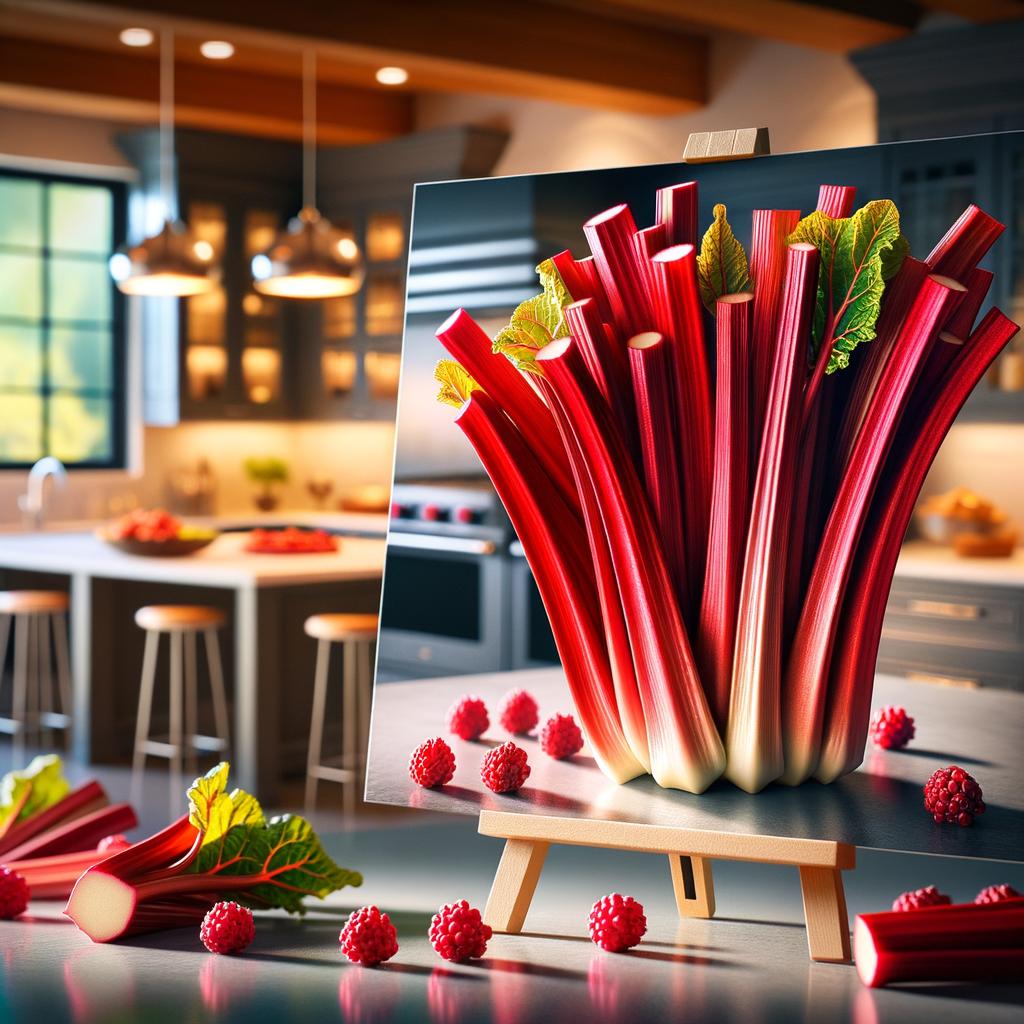Rhubarb Stalks

Description
Let me introduce you to one of the most intriguing ingredients in the culinary world: the rhubarb stalk. This vibrant, crimson-hued stalk is a sight to behold, an alluring blend of rustic charm and sophisticated elegance. Its texture is crisp and fibrous, akin to celery, but its flavor profile is where it truly shines. It is tart, almost puckeringly so, yet with a subtle sweetness that teases the palate, making it a unique ingredient that stands apart from its counterparts.
Primary Uses
Rhubarb stalks are a versatile ingredient that can be used in a variety of culinary applications. They are most commonly used in sweet dishes, like pies, crumbles, and compotes, where their tartness beautifully balances the sweetness of the dish. Rhubarb can also be found in savory dishes, lending a refreshing acidity to rich meats and cheeses. Outside of the kitchen, rhubarb has been used for medicinal purposes, particularly in traditional Chinese medicine, where it is believed to aid digestion and soothe inflammation.
History
The history of rhubarb is as colorful as the stalks themselves. Originating in Asia over 2000 years ago, rhubarb was initially cultivated for its medicinal properties. It wasn't until the 18th century that it began to be used as a food ingredient in England. The tart stalks quickly gained popularity in sweet dishes, leading to rhubarb's affectionate nickname as the "pie plant." There's even a charming piece of folklore that rhubarb stalks can help mend a broken heart, a testament to their unique allure.
Nutritional Information
Rhubarb is not just a treat for the taste buds, but also a boon for health. It is low in calories yet rich in fiber, making it a helpful ingredient for weight management. Rhubarb also provides a good amount of vitamin K, which is essential for bone health. Its vibrant red color is a clue to its high antioxidant content, particularly anthocyanins, which are known for their heart-protective properties. Compared to other fruits used in desserts, rhubarb is lower in sugar, making it a healthier choice for those with a sweet tooth.

